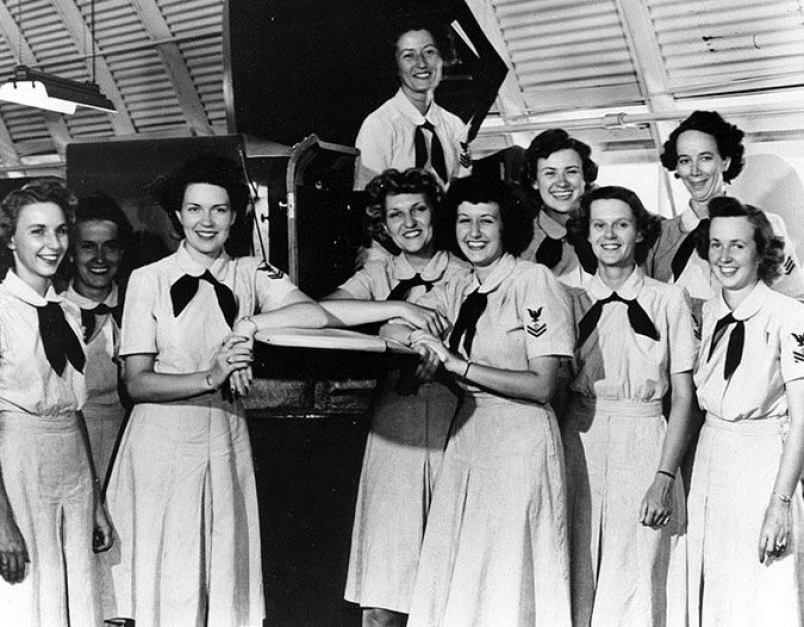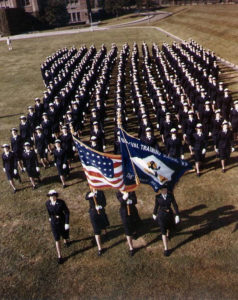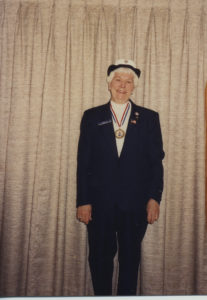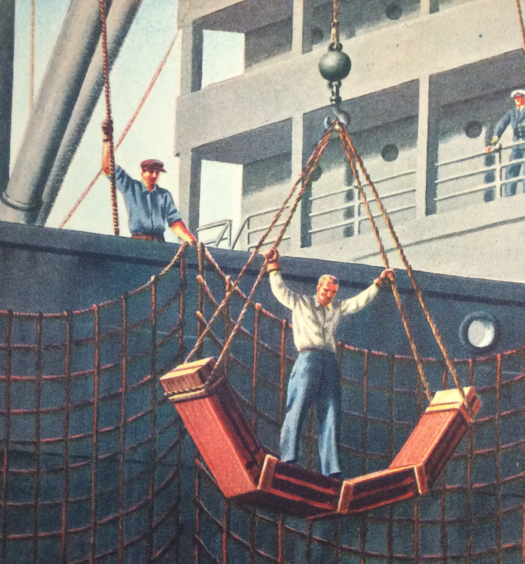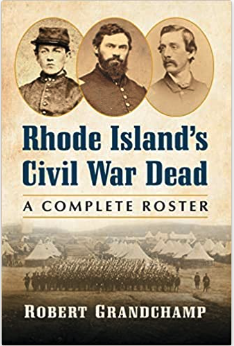I was the oldest of six children, born on February 27, 1919 in Pomfret, Connecticut (on the Rhode Island border), to a French-Canadian mother and a first generation American father of Scottish descent. During the earliest years of my life, we lived in Taftville, Connecticut, while my father apprenticed as a printer at a cotton mill. Later my family moved to my grandparents’ farm in rural Pomfret Landing, Connecticut, where my brothers, sisters, and I grew up.
My father eventually became a master printer at Cranston Print Works, commuting just over the border to Webster, Massachusetts. My mother had her hands full at home, raising my brothers, sisters and me and feeding and housing the two hired hands who worked the farm. As I grew up, I was happy and contented with my simple and innocent life. Following high school, I did not attend college. Instead I took a job at Pratt and Whitney in Willimantic, Connecticut, a company that manufactured airplane parts.
One evening late in 1943, four of my friends and I went to the movies. The theater showed a short movie about the war and the efforts of women in the service, mainly serving as nurses. None of us felt that we were doing anything very important so we talked it over and decided to enlist. We all went to Norwich, Connecticut, to enlist together. When we got there, the Army Recruiters’ Office was closed, but the Navy Recruiters’ Office was still open so I enlisted in the U.S. Naval Reserve as a WAVE.
I awaited my orders. I didn’t go into the Navy right away. When I was inducted on January 13, 1944, I reported to Hunter College, in New York City, New York.
Upon arriving at the Naval Training School in the Bronx, we weren’t allowed to use the telephone for six weeks. Our training seemed mostly to learn to march in formation and physical exercises to strengthen each of us. We did a lot of marching in formation!
Our training also corresponded with the jobs we’d be doing upon receiving our orders. Some of the WAVES were office workers because of their previous employment. As I was a certified machinist, my training concentrated on plane engines and the repairs I’d be making. There were all kinds of jobs, and we would be shipped to many different posts, depending on our assignments.
After our initial training, we were asked where we’d like to be stationed. I said, “California!” When asked why, I said that I’d always liked planes, from the first ride I’d taken on my father’s farm to my work at Pratt and Whitney in Willimantic. I think that was why I was ultimately assigned to Quonset Point, Rhode Island. Little by little the thirty women with whom I’d trained were shipped out to different places, and we never saw one another again while we were in the Navy or thereafter.
We finished our training and were excited to be leaving our training center and going to a base for deployment. We were so young and naive. When we got to the base at Quonset, it was a disappointment. The hollering and cat-call whistles from the sailors at the mess hall were so loud — it was embarrassing!
Since my training had focused on plane part repair, I knew that was what I’d be doing, but I had no idea what I could anticipate. We were so built up as to the importance of being a WAVE, I never looked back.
There were two or three buildings that housed the WAVES on base. The buildings were filled with cubicles. Each cubicle housed four WAVES. There were two sets of bunk beds in each cubicle. There were shelves on which we placed our clothes. We were shown the correct way to fold our clothing—the way that the officers expected to see our clothes folded at inspections. The officers expected everyone to keep the cubicle neat.
After settling into our quarters, we were placed in groups. We continued to do a lot of marching in formation, from our quarters to the chow hall, to our assigned jobs in the hangars or offices and back again.
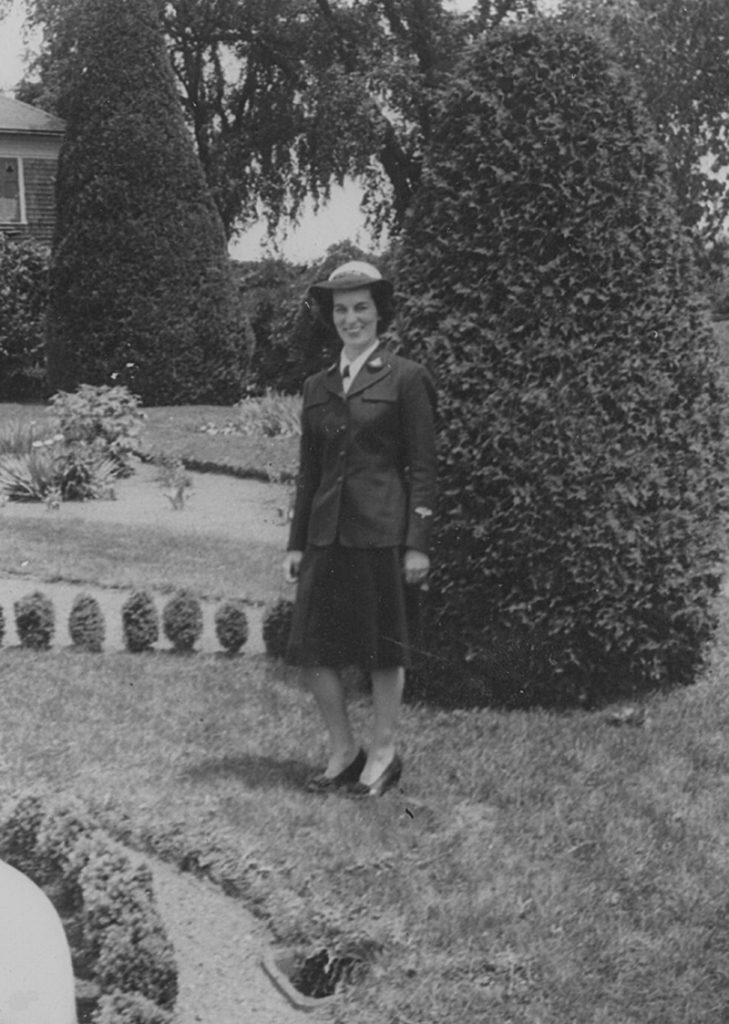
Marie Duggins in her WAVE uniform, having graduated from the Naval Training School at the Bronx, early 1944
As the only women on base, we WAVES became friends. We quickly learned that we could get weekend leave from our officers (who were all men) if our cubicles were neat and clean. Every Friday our captain would inspect our cubicles. A neat, clean cubicle meant a weekend pass to leave the base. If we had a long weekend, we’d go to the city, Providence. On the long weekends we’d try to find someone who could drive us to the city.
We were always able to get a ride from a civilian. Of course, we had to wear our uniforms—navy in the winter, white in the summer. While there we’d walk up and down the city streets and window shop. Occasionally we’d get a drink before returning to Quonset. We had to have the right snap-on on our hats in order to get served a drink. We enjoyed ourselves, but we never did anything that would bring trouble to us or the Navy base. We were never allowed to stay overnight so we would catch a bus at several locations throughout the city for the trip back to base.
Sometimes a few of us would go to the hangar. When a pilot had to go to pick up an entertainer who was coming to the base, we could get a ride to the destination. We were told to be careful if we were on the flights to pick up entertainers. We couldn’t get off the planes for these trips.
At other times the pilots would fly to the Willimantic airport for bombing practice. If we went on those trips, we did have to get off the plane. The pilot would tell us how long we could stay at the nearby bar which was just over the hill. We’d still be in our coveralls and parachutes from the flight when we walked to the bar. We thought we were pretty big stuff when we’d walk into the establishment— the other patrons would look at us. We never missed the flight back to base.
During our free time many of us crocheted or knitted. It was also a time to write home or do any paper work we had. Often times some of us would go for a walk together. Once in a while the captain would offer us a steak dinner and have an outdoor platform for dancing, near the women’s quarters. The steaks were delicious! A bunch of WAVES would start to dance, and soon the sailors would join us.
Also, we used to go to Crescent Park. Some of us would pick up the clams. We’d simply open them and eat them raw. They were so good! Or, we’d go swimming at Narragansett Pier. We were safe then—no worries about crime or rape. People were kinder back then.
When on duty, I worked in a hangar with a bunch of men, many of whom were civilians. There were no other women working where I worked. We chatted, and everyone was friendly. In fact, for my birthday one of the civilians made a tree out of wire to which dollar bills were attached. I don’t remember how much money was on it, but I’ll never forget how surprised I was! In those days we each had a job to do, and we got our jobs done.
I worked in the A&R building as an Aviation Machinist Mate Third Class. The A&R building housed all the departments for repairing the aircrafts—engine parts, wiring, metal repair, and so on. Every so often an aircraft carrier would come to Quonset with engines and parts from airplanes that had been downed in the ocean. All the parts needed to be cleaned of rust and repaired so that they could be returned and reused. My job was to clean the rust off the parts—gyros and engine parts. In the hangar where I worked, there was a large vat with suspension chains hanging above it. It contained a chemical wash of acetone into which we’d submerge the rusted parts. The parts would soak for a time. When we removed them from the vat, we’d take them to our work stations to remove the rust. Sometimes it would take several washes before we could get them clean enough to send back. Although I never actually reassembled an engine, my next job was to learn where the part belonged in the plane’s engine after the part passed inspection.
I felt my job, which I enjoyed, was an important job. We worked with several civilians; my boss was a civilian. At the time, I didn’t think about liking or disliking my job because it was my assigned job, and I was helping the war effort. There was little discussion about anything outside our duties on base. I enjoyed being where I was and having the friends I’d made. Thoughts of war didn’t worry me. I felt very safe and appreciated my officers, who were all men. In fact, my lieutenant attended my wedding.
The Naval Air Station at Quonset Point is where I met my husband, Fletcher “Bud” Duggins. Bud worked in an adjacent hangar to mine as a metalsmith. Everyone in that hangar worked on the plane engines that were brought for repair. He caught my eye while we were each marching in formation to or from the mess or our quarters. We were always in formation, in step, and singing from one place to another.
The rec hall was everyone’s favorite spot on base. When not on duty, we could dance, play cards, and relax. Bud and I simply started talking one day. I remember Bud came over to ask me to dance—he had his own style of dancing and loved to dance. No one else was on the dance floor. I told him that I didn’t like to be the first one out on the dance floor. He asked if I’d mind if he danced with someone else. I said that I didn’t, so he asked another WAVE to dance. The waltz began, and they won first place!
When he’d enter the mess hall for breakfast, he said he never had any problem finding me. He said he’d look for the tallest pile of toast, and there I’d be. He called me a Connecticut Yankee, and I called him a Rebel because he came from North Carolina.
If we didn’t have a weekend leave, Bud and I would go to the rec hall—we’d sit and talk, dance, drink beer—Narragansett beer, of course.
One day we were sitting on one of the benches in front of the mess hall, just talking. Bud was playing with a piece of wire. When I asked him what he was doing, he responded, “I’m making a ring for the girl I’m going to marry.” I was so thrilled that I called my mother right away. I wore that ring for three days straight and had to take it off because it turned my finger green!
The first time I brought him home with me, I was worried about what he’d think. He’d talked about his sisters and his mother and life in Winston Salem, North Carolina. His mother was always working out in her garden, raising flowers that would be sent to New York City. At the time I’d enlisted, at our farm at Pomfret Landing, we had an outhouse on the hill behind the house, a pot under every bed, oil lamps, and a hand-operated pump from which we’d get water. I didn’t know what he’d think when he saw my home. But, when we arrived home, to my surprise and pleasure, my father had electrified our home— and we had indoor plumbing!
My grandmother, who lived with us, came to meet Bud and liked him right away. He spoke no French, and she spoke no English. He was always a gentleman and could not abide swearing, especially in the presence of a woman.
We were married on November 24, 1944, while we were still in the Navy. We got our papers in order and were married in the chapel on the base. Mickey and Joe Stoy, who were also stationed at Quonset, stood up for us. My mother, father, and sister-in-law attended, along with my lieutenant. A reception followed at King’s Wood, a lovely, big restaurant. My father paid for everything. When we returned to base, Bud went to his barracks, and I went to mine. Bud got quite a bit of kidding from the other sailors, as you can imagine.
I remember once Bud got me a blue ticket—a number 5. If I was caught off base without a pass, I could use the blue ticket to avoid punishment. I was proud of Bud for being able to get one for me.
Marines guarded the front gate, but no one guarded the back gate as it was near the cemetery for planes that didn’t fly anymore. A lot of us would jump the back gate and sneak out. Of course, if we’d been caught, we would have been in trouble. Except now I had a blue ticket.
One day there was a buzz circling through the base. It seemed like a long time before our captain made the announcement that the war was ended. On VJ Day everyone applauded and cheered—we were all so happy the war had ended. People were running to the telephones, and cars were driven through the base with sailors hooting and shouting that the war was over.
At news of the end of the war, I remember being happy because it meant I could go home. We were told we’d be stationed elsewhere so we should start packing in anticipation of shipping out. Bud wasn’t shipped to Banana River, Florida, as so many sailors were, but he did have to finish his tour at Quonset. I went to see my captain for permission to stay until Bud’s tour ended in November 1945. I remained in the service so we could leave together. When our tours ended, somehow his discharge papers ended up in my barracks, and mine in his. As the captain read off each name and the women heard Bud’s name instead of mine, they hooted and hollered, “There’s a man in the house!” Of course no enlisted men were allowed in the women’s quarters. Our service in the Navy ended when we were honorably discharged at the U.S. Naval Barracks in Boston on November 9, 1945.
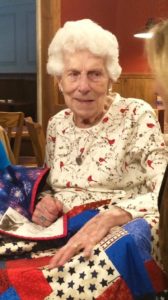
Marie Duggins receives a Quilt of Valor from the Dream Quilters of Westerly, Rhode Island. The label contained a photograph of her and her younger brother in their Navy uniforms.
Shortly thereafter, Bud bought a car from a Marine who was being shipped out. We ended up going to East Orange, New Jersey, where his mother then lived. Bud couldn’t find work, so he bought some chickens and helped his mama maintain her gardens. We lived there for a little more than six months.
One day when I called my family in Connecticut, my father urged us to come home. Bud loaded his chickens into a crate, put them in our car, and drove us all to Pomfret. Once there Bud planted a field of potatoes for my father and helped around the farm until he found a job. While we lived with my parents and grandmother, our first daughter was born. On her eleventh-month birthday, we moved into our own home in Danielson, Connecticut. But that begins another tale . . . .
[Banner Image: WAVES report for duty at the Naval Air Station at Quonset Point, July 24, 1945, in a Quonset hut (Naval History and Heritage Command)]
